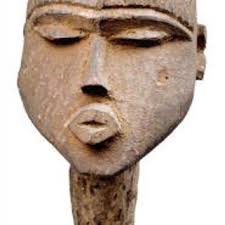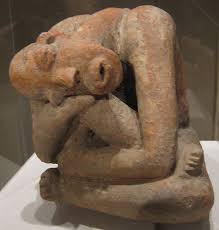People display signs of a stroke up to 10 YEARS before it happens













People display signs of a stroke up to 10 YEARS before it happens
People display tell-tale signs of a looming stroke up to ten years before it happens, a study reveals.
They experience a more rapid mental decline and decreased ability to perform every day tasks, such as banking and cooking.
Spotting these early signals may allow patients to reduce their risk by adopting a healthier lifestyle or trialing new medication.
esearchers from Erasmus MC University, Rotterdam, examined data on 14,712 people who were tracked for up to 28 years.
Each sat a series of mental and physical tests and a forensic interview at the start of study and every few years throughout.
This included tests of memory, verbal fluency, reaction times and an assessment of their ability to wash, cook, clean and manage their finances.
Analysis revealed their performance in the tests began to diverge from those who did not suffer a stroke up to ten years prior to the event.
Differences in their ability to perform basic and advanced daily tasks emerged two to three years before the stroke.
Women, people with fewer academic qualifications, and those with a gene associated with Alzheimer's disease appeared at greatest risk.
The performance of stroke victims continued to fall more rapidly after the event.
Dr Alis Heshmatollah said: 'Our findings demonstrated that future stroke patients start to deviate from stroke-free controls up to 10 years before the acute event, suggesting that individuals with cognitive and functional decline are at a higher risk of stroke and are possible candidates for prevention trials.'
Dr Heshmatollah said the findings suggest harmful physical changes are taking place in the brain years in advance.
She added: 'The accelerated decline in cognition and daily functioning before stroke suggests that individuals with future stroke suffer from accumulating intracerebral damage years before the acute event, such as cerebral small vessel disease, neurodegeneration, and inflammation'.
Around 100,000 people in the UK suffer a stroke each year and there are 1.2million survivors nationwide.
The study, published in the Journal of Neurology Neurosurgery & Psychiatry, did not examine differences in the type of stroke, nor their severity.
During the study period, 1,662 participants suffered a first stroke, at an average age of 80.
Analysis revealed their performance in the tests began to diverge from those who did not suffer a stroke up to ten years prior to the event.
Differences in their ability to perform basic and advanced daily tasks emerged two to three years before the stroke.
Women, people with fewer academic qualifications, and those with a gene associated with Alzheimer's disease appeared at greatest risk.
The performance of stroke victims continued to fall more rapidly after the event.
Dr Alis Heshmatollah said: 'Our findings demonstrated that future stroke patients start to deviate from stroke-free controls up to 10 years before the acute event, suggesting that individuals with cognitive and functional decline are at a higher risk of stroke and are possible candidates for prevention trials.'
Dr Heshmatollah said the findings suggest harmful physical changes are taking place in the brain years in advance.
She added: 'The accelerated decline in cognition and daily functioning before stroke suggests that individuals with future stroke suffer from accumulating intracerebral damage years before the acute event, such as cerebral small vessel disease, neurodegeneration, and inflammation'.
Around 100,000 people in the UK suffer a stroke each year and there are 1.2million survivors nationwide.
The study, published in the Journal of Neurology Neurosurgery & Psychiatry, did not examine differences in the type of stroke, nor their severity.
Reference: Daily Mail: Shaun Wooller Health Correspondent For The Daily Mail
Family demand answers as father fights for life after Covid jab












Family demand answers as father fights for life after Covid jab
The family of a father-of-two are demanding answers while he fights for his life with a potentially fatal syndrome after having the AztraZeneca Covid jab.
Anthony Shingler, 57, from Northwood in Stoke-on-Trent, was left 'paralysed' after having his first dose of the jab three months ago in March.
He has since been diagnosed with Guillain-Barre syndrome which is a very rare and serious condition that affects the body's nerves.
It can be treated and most people will eventually make a full recovery, although it can occasionally be life-threatening and some people are left with long-term problems.
His wife Nicola is convinced that getting the vaccine was the trigger for Mr Shingler's problems.
Guillain-Barre syndrome is thought to be caused by a problem with the immune system where it attacks the body's nerves rather than infections.
It is not clear why this happens but it often occurs after an infection - especially one in the airways, as can happen with flu.
Doctors still say the benefits of having a Covid jab far outweigh the risks.
Mrs Shingler, 48, is now calling on help from the Government. She told the Stoke Sentinel: 'I'm adamant it was the vaccine, he was fine until he had it. They've found no other trigger.
'It's a nightmare to watch him. I can't stand seeing my husband in so much pain every day. We've been totally ignored and forgotten by the government.
'He is still getting texts from the NHS to go for a second jab and he is lying in a NHS hospital paralysed. This is how impersonal it is. It's wrong on all levels.'
Mrs Shingler said that after her husband first received the jab he had mild symptoms for a few days including aching legs.
But after a week on March 12 he began to feel numbness from his hips down. And a week after that he started getting pins and needles in his hands and feet.
When she took her husband to A&E he was sent home after being told he might be allergic to something.
On March 22 Mr Shingler had to be rushed to Royal Stoke University Hospital where he was put on a ventilator and told he had Guillain-Barre syndrome.
Mrs Shingler says her husband, who has a lot of nerve damage, is still on the ventilator months later and has been suffering from hallucinations and infections.
She says she has since been contacted by a company which researches medicines and possible links to vaccines - Genomics.
What is Guillain-Barré syndrome?
Guillain–Barré syndrome is a rare disorder in which the immune system goes into overdrive and the body attack its own nerves.
Common symptoms of the rare condition include weakness and tingling in the limbs.
As patients' conditions worsen, this can lead to parts of the body — or in some cases the whole body — being paralysed.
The syndrome is rare, affecting about one in 100,000 annually in the UK and US.
Fewer than 20,000 cases are diagnosed per year in the US, according to the National Institute of Neurological Disorders and Stroke.
Doctors say it is often triggered by a viral or bacterial illness, such as Campylobacter jejuni.
There is no cure. Treatment focuses on restoring the nervous system.
It can be fatal if it involves the respiratory muscles.
And she has signed a petition to reform the Vaccine Damage Payments Act 1979 to offer more support to people harmed by having a Covid jab because her husband was the family's main earner.
She added: 'When they were planning this vaccination programme why didn't they put any severe side effects to look out for when they knew what was coming? They knew there would be a small minority.
'The government has shown no support. It's callous and barbaric.
'He has got the slimmest chances of recovery. He will surely end up with disabilities.
'The government can bury their heads in the sand - but they are wrecking the chances of the vaccine in the future. My daughters won't forget this. His grandchildren won't forget that their granddad was not supported.
'Trying to cover it up makes it look even more sinister.'
The Medicines and Healthcare products Regulatory Agency (MHRA) is monitoring all potential side effects reported to them, including Guillain-Barre Syndrome.
Dr June Raine, MHRA chief executive, said: 'Over 72million doses of vaccines against Covid-19 have now been administered in the UK, saving thousands of lives through the biggest vaccination programme that has ever taken place in this country.
'No effective medicine or vaccine is without risk. Our advice remains that the benefits of the vaccine outweigh the risks in the majority of people.
'We ask anyone who suspects they have experienced a side effect linked with their COVID-19 vaccine to report it to the Coronavirus Yellow Card website.'
Four Brits get Guillain-Barre syndrome after AstraZeneca
Four British men last month developed Guillain-Barré syndrome just days after having AstraZeneca's Covid vaccine.
All four cases were spotted in the Nottingham area, where around 700,000 people have had the British firm's coronavirus jab.
British health chiefs have yet to offer a public breakdown of how many cases of the syndrome have been spotted in vaccine recipients across the entire country.
But a similar link has been spotted in both Australia and India, where AstraZeneca's vaccine is also being dished out. It is also a known rare side effect of flu and HPV jabs.
UK drug watchdogs have recommended under-40s, who face a tiny risk of falling seriously ill with Covid, get alternative jabs.
Cases of Guillain-Barre syndrome after AstraZeneca's vaccine were described in two separate studies in the journal Annals of Neurology.
The complication — normally triggered by an infection — usually occurs in around one in 100,000 people in the UK and US.
But doctors in India who also uncovered the link say it was occurring up to 10 times more than expected.
One of the articles published in the journal broke down the cases spotted in Nottingham, which all occurred within ten days of each other.
Symptoms began 11 to 22 days after the first jab and all of the four men were aged between 20 and 57.
Dr Christopher Allen, a clinical neuroscientist at Nottingham University, who wrote the article, admitted they cannot be certain the jab caused the neurological illness and it could have happened by chance.
But it demonstrates the need for 'robust post-vaccination surveillance,' he said. And he added vaccines currently deployed are 'very safe'.
Dr Allen added the reaction may be 'a cross-reactive immune response to the SARS-CoV-2 spike protein', causing the immune system to overreact and the body to attack its own nerves.
Dr Allen said if the condition is caused by AstraZeneca's vaccine, it will be because spike proteins contained in the firm's viral vector technology.
Pfizer's and Moderna's MRNA vaccines do not contain the same spike proteins, so are unlikely to see similar links to the syndrome.
The second paper by neurologists at the Aster Medcity hospital in Kochi, Kerala, identified seven cases of severe Guillain-Barré syndrome.
They were struck down within a fortnight of receiving the first AstraZeneca vaccine.
Lead author Dr Boby Varkey Maramattom said rates of the condition were between 1.4 and 10-fold higher than would normally be expected.
And the patients suffered 'unusually severe' facial weakness — one of the symptoms of the condition.
Four of the cases involved women aged 40 to 70 years — three of whom required mechanical ventilation.
Nerve damage around the face and head occurred in four patients — which happens in less than five per cent of Guillain-Barré syndrome cases.
Dr Maramattom said while the findings suggested the vaccine could be to blame a clear link had been proven and it is 'unlikely' the jabs had triggered the syndrome in all cases.
The benefits of vaccination also 'substantially outweigh the risk of this relatively rare outcome,' he said.
Reference: Daily mail: Isabella Nikolic For Mailonline
Thousands more women report changes to periods after COVID jab but experts say fertility not affected












Thousands more women report changes to periods after COVID jab but experts say fertility not affected
The number of women reporting changes to their menstrual cycle linked to having a COVID vaccine has risen to 13,000.
The figure has increased from around 4,000 women last month.
The Medicines and Healthcare products Regulatory Agency (MHRA) has so far received more than 13,000 reports from women across the country who have experienced changes to their period after having the vaccine.
Latest updates on COVID from the UK and around the world
Experts say there is no evidence to believe the coronavirus vaccine affects fertility, but there are reports that some women are refusing to get the jab.
Dr Viki Male, a reproductive immunologist at Imperial College London, said women should feel confident getting the jab and that reports of changes are not unexpected, as similar reactions have been observed with the flu vaccine.
She told Sky News that 25% of women who contract COVID-19 also see changes to their period.
"We know that sex hormones affect the immune system and the immune system affects sex hormones and we have some evidence that the flu vaccine, given a certain time in your cycle, can slightly dampen the amount of progesterone you have, and it's the balance between oestrogen and progesterone that builds up and breaks down the lining of your uterus.
"So if these get slightly out of whack then we might expect to get a heavier period or a later period," she said.
These reports have led to fears among some women that the vaccine could affect fertility, fuelled in part by conspiracy theories promoted by anti-vaccination groups online.
As a result, experts are concerned that increasing numbers of young women are hesitant about the vaccine or refusing to have it altogether, putting pressure on the government's plan to unlock the country as it relies heavily on high numbers getting vaccinated.
Dr Male said there is no scientific link between the vaccination and fertility issues and warned that women can be more susceptible to problems during pregnancy if they contract COVID-19.
She said: "We have quite a lot of evidence that these vaccines don't reduce your chances of getting pregnant.
"In the clinical trials, people were asked not to become pregnant but nonetheless accidents happen.
"Across the four vaccines that were approved in the UK, 65 people became pregnant by accident and they became pregnant equally in the vaccinated and the unvaccinated group, which tells us that the vaccine isn't reducing people's chances of getting pregnant.
"Now that the vaccines have been more widely rolled out, we also have studies in IVF clinics where they keep a track of how likely you are to become pregnant if you're vaccinated, compared to if you're not vaccinated.
"Again, being vaccinated does not reduce your chances of getting pregnant in an IVF setting."
She added: "COVID itself is not without harm, even if you are a young and healthy woman.
"If you catch COVID in late pregnancy it is associated with an increased risk of pre-term birth, stillbirth, needing intensive care and your baby needing intensive care.
"So people who are really actively thinking about getting pregnant in the near future might actually even be keener to get the vaccine than they would be otherwise."
Dr Pat O'Brien, vice president at the Royal College of Obstetricians and Gynaecologists, added: "There's no plausible biological mechanism by which the vaccine could affect fertility, and there's no evidence whatsoever that it does affect fertility.
"There are even some early studies related to fertility treatment that show that there doesn't seem to be any difference at all between people who haven't had the vaccine and people who have had the vaccine or indeed people who've had COVID and have COVID antibodies."
Reference: Sky News: Kate McCann, political correspondent
New HIV vaccine trial starts at University of Oxford











New HIV vaccine trial starts at University of Oxford
Researchers at the University of Oxford have started a clinical trial for a novel HIV vaccine candidate.
The goal of the trial, known as HIV-Core 0052, is to evaluate the safety, tolerability, and immunogenicity of the HIVconsvX vaccine.
The mosaic vaccine targets a broad range of HIV-1 variants, making it potentially applicable for HIV strains in any geographical region.
Oxford started vaccinations of the novel HIV vaccine candidate as part of a Phase 1 clinical trial in the UK.
Thirteen healthy, HIV-negative adults, aged 18-65 and considered not to be at high risk of infection, will initially receive one dose of the jab followed by a further booster dose after four weeks.
Professor Tomas Hanke, professor of vaccine immunology at the Jenner Institute, University of Oxford, and lead researcher on the trial, said: “An effective HIV vaccine has been elusive for 40 years.
“This trial is the first in a series of evaluations of this novel vaccine strategy in both HIV-negative individuals for prevention and in people living with HIV for cure.”
While most HIV vaccine candidates work by inducing antibodies generated by B-cells, HIVconsvX induces the immune system’s T cells, targeting them to highly conserved and therefore vulnerable regions of HIV – an Achilles heel common to most HIV variants.
The trial is part of the European Aids Vaccine Initiative (EAVI2020), an internationally collaborative research project funded by the European Commission under the Horizon 2020 health programme for research and innovation.
Researchers hope to be able to report results of the trial by April next year.
Reference: By Nina Massey, PA Science Correspondent
Articles - Most Read
- Home
- LIVER DIS-EASE AND GALL BLADDER DIS-EASE
- Contacts
- African Wholistics - Medicines, Machines and Ignorance
- African Wholistics -The Overlooked Revolution
- African Holistics - Seduced by Ignorance and Research
- The Children of the Sun-3
- Kidney Stones-African Holistic Health
- The Serpent and the RainBow-The Jaguar - 2
- PART ONE: DIS-EASE TREATMENT AND HEALTH-3
- 'Tortured' and shackled pupils freed from Nigerian Islamic school
- King Leopold's Ghost - Introduction
- PART ONE: DIS-EASE TREATMENT AND HEALTH-4
- PART ONE: DIS-EASE TREATMENT AND HEALTH-2
- PART ONE: DIS-EASE TREATMENT AND HEALTH-5
- African Wholistics - Medicine
- Menopause
- The Black Pharaohs Nubian Pharaohs of Ancient Egypt
- The Mystery System
- PART ONE: DIS-EASE TREATMENT AND HEALTH-6
Who's On Line?
We have 124 guests and no members online
Ad Agency Remote
Articles - Latest
- The Male G Spot Is Real—and It's the Secret to an Unbelievable Orgasm
- Herbs for Parasitic Infections
- Vaginal Care - From Pubes to Lubes: 8 Ways to Keep Your Vagina Happy
- 5 Negative Side Effects Of Anal Sex
- Your Herbs and Spices Might Contain Arsenic, Cadmium, and Lead
- Struggling COVID-19 Vaccines From AstraZeneca, BioNTech/Pfizer, Moderna Cut Incidence Of Arterial Thromboses That Cause Heart Attacks, Strokes, British Study Shows
- Cartilage comfort - Natural Solutions
- Stop Overthinking Now: 18 Ways to Control Your Mind Again
- Groundbreaking method profiles gene activity in the living brain
- Top 5 health benefits of quinoa
- Chromolaena odorata - Jackanna Bush
- Quickly Drain You Lymph System Using Theses Simple Techniques to Boost Immunity and Remove Toxins
- Doctors from Nigeria 'facing exploitation' in UK
- Amaranth, callaloo, bayam, chauli
- 9 Impressive Benefits of Horsetail
- Collagen The Age-Defying Secret Of The Stars + Popular Products in 2025
- Sarcopenia With Aging
- How to Travel as a Senior (20 Simple Tips)
- Everything you need to know about mangosteen




